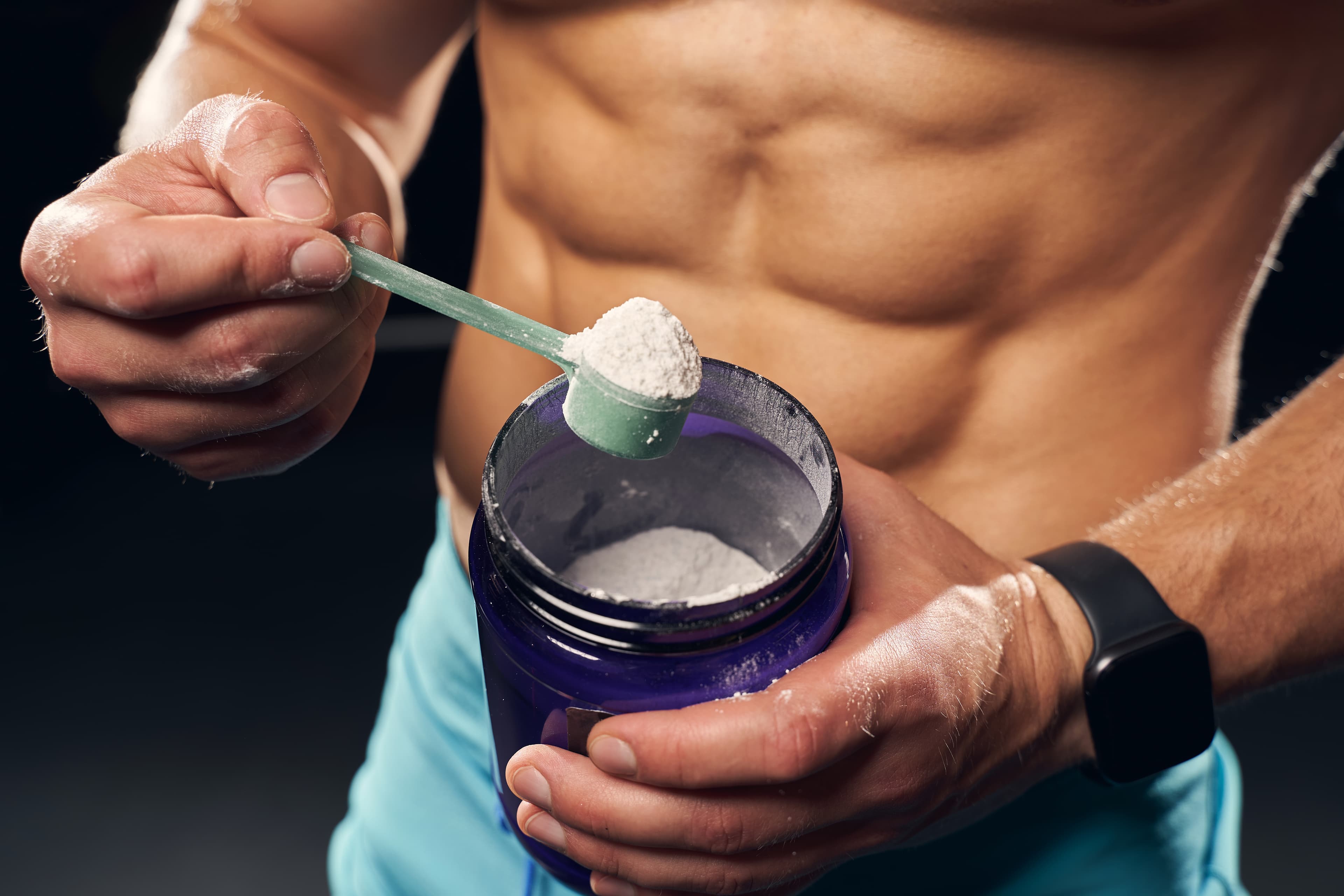The Essential Role of Protein in Muscle Recovery and Growth

MyFitnessCoach
December 6, 2024
Protein is one of the most talked-about nutrients in the world of fitness and wellness, and for good reason. It plays a pivotal role in muscle recovery and growth, helping you achieve your fitness goals more effectively. Whether you’re a beginner in fitness or a seasoned athlete, understanding how protein works in the body can greatly enhance your training and recovery.
In this article, we’ll dive into the benefits of protein for muscle recovery, the role it plays in muscle growth, and how you can make the most of this nutrient with the help of MyFitnessCoach.
Understanding Protein: The Building Block of Muscle
Protein is one of the three essential macronutrients, alongside carbohydrates and fats. It is composed of amino acids, which are often referred to as the building blocks of muscles. These amino acids are involved in repairing and building muscle tissues, which are constantly being broken down during exercise and daily activities.
Types of Amino Acids
There are two types of amino acids: essential and non-essential. Essential amino acids cannot be produced by the body and must be obtained through diet. Non-essential amino acids, however, can be synthesized by the body. Both types are crucial for muscle recovery and growth.
For optimal muscle recovery and growth, it’s important to consume a variety of protein sources to ensure your body gets all the essential amino acids it needs.
The Role of Protein in Muscle Recovery
When you work out, especially during resistance or high-intensity interval training (HIIT), your muscles undergo microscopic tears. These tears are a natural part of the muscle-building process, but they need to be repaired to grow stronger. Protein plays a critical role in this repair process, helping your muscles rebuild and recover faster.
How Protein Helps with Muscle Repair
After a workout, your body’s rate of protein synthesis (the process of building muscle proteins) increases. This means that more protein is needed to help repair and rebuild muscle tissue. Consuming protein post-workout has been shown to reduce muscle soreness and speed up recovery, allowing you to perform better in your next session.
Protein also reduces muscle protein breakdown, a natural process where your body breaks down old proteins for energy and to recycle amino acids. The right amount of protein intake helps maintain a positive protein balance, which is essential for muscle recovery and reducing the risk of injury.
Timing Protein for Optimal Recovery
Consuming protein shortly after a workout has been shown to maximize its muscle-repairing benefits. Known as the "anabolic window," this period immediately following exercise is when your muscles are most receptive to protein. However, while it’s beneficial to consume protein within an hour of working out, recent studies suggest that spreading protein intake evenly throughout the day can also help with muscle recovery and growth.
The Role of Protein in Muscle Growth
While muscle recovery is crucial for growth, protein plays an equally important role in actually building muscle. Muscle growth, also known as hypertrophy, occurs when the rate of muscle protein synthesis exceeds muscle protein breakdown. This growth process requires a steady supply of amino acids, which are derived from protein intake.
How Protein Supports Muscle Growth
Protein supports muscle growth by providing the essential amino acids needed to stimulate muscle protein synthesis. When you consume protein, your body breaks it down into amino acids that help build new muscle tissue. This process not only increases muscle mass but also improves muscle strength and endurance.
Ideal Protein Intake for Muscle Growth
For those actively engaged in strength training or intense physical activities, a higher protein intake is recommended. The general guideline is to consume between 1.6 to 2.2 grams of protein per kilogram of body weight per day. This amount supports both muscle recovery and growth, helping you get the most out of your workouts.
Quality Over Quantity
Not all protein sources are created equal. High-quality proteins, such as lean meats, fish, eggs, and dairy, contain all essential amino acids and are easily absorbed by the body. Plant-based proteins like beans, lentils, and quinoa are also beneficial, though they may need to be combined to achieve a complete amino acid profile.
Choosing the Best Protein Sources for Muscle Recovery and Growth
Getting protein from a variety of sources ensures that your body receives a complete profile of amino acids for muscle recovery and growth. Here are some of the best protein sources to consider:
- Lean meats (chicken, turkey, lean beef): High in essential amino acids and low in fat.
- Fish (salmon, tuna): Provides protein along with omega-3 fatty acids, which have anti-inflammatory properties that aid recovery.
- Eggs: Contain a complete amino acid profile and are easily digestible.
- Dairy (Greek yogurt, milk): High in protein and also provides calcium, which supports bone health.
- Plant-based proteins (beans, lentils, chickpeas, quinoa): Excellent for those following a vegan or vegetarian diet.
How Much Protein Should You Consume Post-Workout?
After a workout, aim to consume about 20-30 grams of protein to kickstart the muscle repair process. This amount is generally sufficient for muscle recovery without overloading the body. Some effective post-workout protein sources include:
- Protein shakes or smoothies with whey or plant-based protein powder.
- Greek yogurt with berries.
- Grilled chicken or turkey breast.
- Hard-boiled eggs.
Common Myths About Protein and Muscle Growth
- Myth: You need excessive protein to build muscle.Truth: While protein is essential, excessive intake does not lead to faster or greater muscle growth. Balance and timing are more important.
- Myth: Plant-based proteins are not effective for muscle growth.Truth: Plant-based proteins can be just as effective as animal proteins when consumed in adequate amounts and combinations.
- Myth: Protein must be consumed immediately after a workout.Truth: While the "anabolic window" exists, spreading protein intake throughout the day is equally beneficial for muscle recovery and growth.
Incorporating Protein into Your Fitness Routine with MyFitnessCoach
Now that you know the importance of protein for muscle recovery and growth, it’s time to apply this knowledge to your fitness journey. This is where MyFitnessCoach comes in! MyFitnessCoach is a powerful fitness app that provides tailored workout programs, including HIIT sessions that are perfect for building strength and stamina.
MyFitnessCoach not only guides you through effective workout routines but also includes a nutrition tracker that helps you monitor your protein intake, ensuring you’re consuming the right amount of nutrients to fuel your fitness goals. The app provides meal suggestions rich in protein to support muscle recovery and growth, allowing you to make the most of each workout.

With MyFitnessCoach, you can set protein goals, track your progress, and get personalized recommendations based on your fitness level and dietary preferences. Whether you’re aiming to build muscle, lose weight, or simply improve your fitness, MyFitnessCoach makes it easy to integrate optimal protein intake into your daily routine.
Similar Articles
Stay informed with these similar articles.

MyFitnessCoach
October 18, 2023
What Does Body Goals Mean? A Path to a Healthy Lifestyle
In the world we live in now, lots of people talk about "body goals," which means having a body that's seen as perfect. On social media, in magazines, and on TV, we see lots of pictures of people with what seems like perfect bodies, which makes us feel like we have to look like them. But the real meaning of "body goals" is more than just looking good. It's about taking care of your whole self, not just how you look. In this article, we will discuss what does body goals actually mean and how you can achieve your body goals. Let’s get started:
.webp&w=3840&q=75)
MyFitnessCoach
September 5, 2023
How Much Protein in an Egg | The Nutritional Power
Eggs have long been a breakfast favorite for many, and for good reason. They're not only delicious but also packed with essential nutrients, making them a versatile and nutritious addition to your diet. One of the most common questions about eggs is, "How much protein is in an egg?" In this comprehensive guide, we'll delve into the world of eggs and explore their protein content, nutritional benefits, and how they can contribute to a balanced diet.

MyFitnessCoach
May 18, 2023
Fitness Guide: How Do I Start A Weight Loss Journey
Ready to start on a life-changing weight-loss journey? Congratulations for taking the first step towards being a better and happier version of yourself! Starting off a weight-loss journey may be both satisfying and stressful. With so much information available, having a well-defined plan and trusted assistance in achieving your goals is important. This article will help you start your weight-loss journey and achieve the results you desire.
